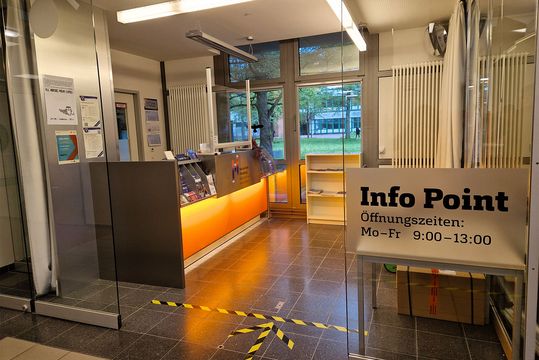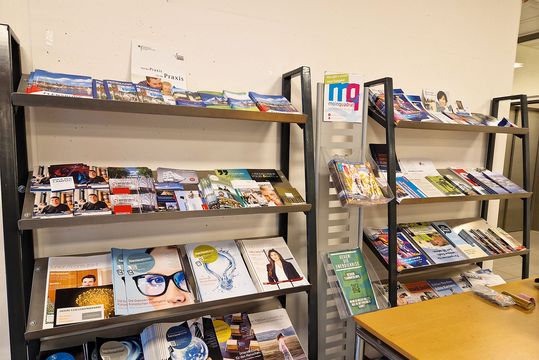

Diversity in Germany
Diversity is an increasingly important part of public discourse in Germany. The German language even has two words for it – Diversität and Vielfalt. What legal mechanisms does Germany have in place to foster diversity in society? And where can you turn for advice and support? Read on to find out.
“No person shall be favoured or disfavoured because of sex, parentage, race, language, homeland and origin, faith or religious or political opinions. No person shall be disfavoured because of disability.” That’s Article 3 of Germany’s Basic Law (Grundgesetz) – the country’s constitution. In 2006, Germany’s lawmakers broadened and extended these protections in an anti-discrimination law – the General Act on Equal Treatment (Allgemeines Gleichbehandlungsgesetz, or AGG for short). Among other things, this law makes it illegal to discriminate on the basis of sexual orientation. The purpose of the law is to “prevent or stop” discrimination.
"The student community is incredibly vast and rich and teaches you to be open to new opportunities"
Roberta
Diversity is in many respects already a lived reality both on and off campus in German university cities. That has certainly been the experience of , and .
Roberta is from Italy and is studying English language and literature in Cologne. She really values the liberal atmosphere she has encountered there. “As a student, I feel I have the opportunity to do anything. The student community is incredibly vast and rich and teaches you to be open to new opportunities.”
, who comes from Armenia and is active in the LGBTQIA+ community, agrees: “To me, Germany is one of Europe’s most tolerant countries towards queer people.”
And , a student from Nigeria, likewise values the openness he has experienced here in Germany. “I enjoy meeting new people from different cultures, and Germany has been a strong location for me to explore that”, he says.
It has to be said that other countries are further ahead than Germany when it comes to accessibility. In the UK and the USA, for example, it is a legal requirement for people with disabilities to be accorded the same access to buildings and the same level of service as people who do not have disabilities. But not yet in Germany, unfortunately – despite years of campaigning by high-profile activists like and .
That’s not to say that Germany has no legal protections around accessibility. In the education sector, for example, accessibility is covered by the UN Convention on the Rights of Persons with Disabilities, the Federal Framework Act on Higher Education (Hochschulrahmengesetz), and state-level legislation on higher education. Under these laws, higher education institutions are required to take various inclusiveness measures – such as making buildings accessible by means of ramps and lifts. Or overcoming barriers to information by providing sign language interpreters to assist at events and in discussions with advisors on matters like student grants and loans (such as BAföG). , Germany’s national association of student welfare providers, offers a wealth of information on accessibility at universities.
If you’re seeking advice or are in need of support to deal with discrimination, there’s a good chance you’ll find the help you need right on campus. Your student welfare service (Studierendenwerk) and the student union (AStA) are good places to start. As well as that, almost every German higher education institution has an anti-discrimination office (Antidiskriminierungsstelle). Ask at the international office of your higher eduaction institution who to talk to and how to get in touch. The system is reasonably easy to navigate, so you’ll soon find your feet.
You’ll see that it’s not that difficult to settle into everyday life in Germany. In addition to the counselling services at the university, there are also many advisory support services in the wider community that you can reach out to if you have questions or have been the victim of discrimination. In most cases, initial contact can be made anonymously. If the matter is serious and you wish to report it to the police, you can go to the nearest police station directly or get help with filing your complaint from one of the advisory support services. And remember: the law is on your side. In Germany, discrimination is illegal.
Almost every German university has an anti-discrimination office. For help, just ask your higher education institution who to talk to and how to get in touch. Additionally find below websites that might help you.
Ayo from Nigeria talks about his experience with racism in his video about first impressions. Watch the video below.
Taking to the streets